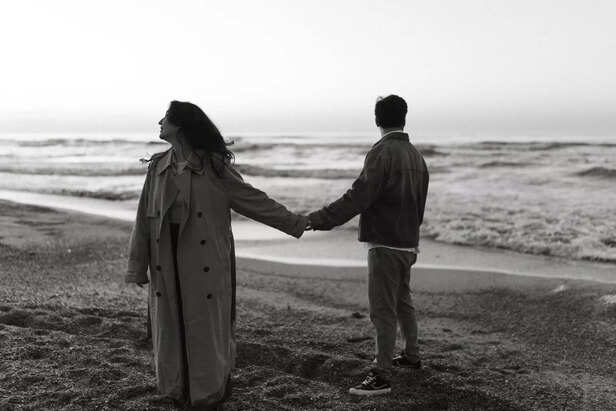How to Politely End a Relationship Without Hurting the Other - Chanakya Niti
Riya Kumari | Apr 16, 2025, 23:08 IST
So here’s the deal. You’re stuck in a situationship (or god forbid, an actual relationship) that’s run its course. You’ve tried. Really. You even watched one whole football match just to bond. But now it’s giving “slow death by misalignment” and not even your group chat can save you. And now comes the worst part: the breakup. The “it’s not you, it’s... my spiritual awakening” conversation. You want to be kind, but not a doormat. Honest, but not a villain.
Let’s be honest—leaving someone you once chose is one of the hardest things to do. Not because you’re cruel. But because you're human. You remember their laugh, how they held your hand when things were falling apart, the little inside jokes no one else in the world would understand. You don’t want to hurt them. You just know, deep down, that staying would be a lie. And still, ending something isn’t weakness. It’s an act of clarity. One that requires more courage than continuing out of guilt. Strangely, few people talk about how to end a relationship well. We either see silence and ghosting as protection or brutal honesty as integrity. But what if there’s a middle path? One that respects both truth and tenderness?
1. Clarity is the first kindness

Chanakya said, “A person should not be too honest. Straight trees are cut first.” But don’t confuse that for dishonesty. What he meant was this: raw truth, without timing and tact, can hurt more than it heals.
So when you leave, be clear—not cruel. Don’t wrap the breakup in vague metaphors or spiritual cliches they’ll spend months trying to decode. Don’t say “maybe someday” when you know it’s never. Say: “I know this will hurt, but I also know this is right. For both of us.” That’s not cold. That’s courageous.

Chanakya warned, “Before you start any work, ask yourself three questions – Why am I doing it, what the results might be, and will I be successful?” If you’re ending things to run from conflict, discomfort, or guilt—you’re not done learning yet. Breakups are not just about leaving the other. They’re about facing yourself.
Ask: Am I leaving to grow? Or am I running from my own reflection in this relationship? If it’s the former, carry yourself with grace. If it’s the latter, stay. Understand. Then decide.
3. Let silence come after understanding, not instead of it

Chanakya said, “Learn from the mistakes of others. You can't live long enough to make them all yourself.” One of the most common modern mistakes? Silence as a shortcut to closure. We ghost, we disappear, we hope our absence says what we didn’t have the strength to say.
But silence without explanation creates wounds, not space. Give people the dignity of an ending. You don’t owe them forever. But you owe them your words. Say what they need to hear to walk forward—not what makes you feel less guilty walking away.
4. You can love someone deeply and still know they’re not your home

One of the quietest tragedies of life is staying in something because “they didn’t do anything wrong.” But love isn’t just about avoiding pain. It’s about presence, direction, and truth. Chanakya reminds us: “He who is overly attached will fear loss. He who fears loss will not act.”
Don’t confuse comfort for compatibility. And don’t stay just because you’re afraid of what leaving makes you look like. You are allowed to outgrow people gently. Not every ending is a betrayal. Sometimes, it’s just the next step in your becoming.
5. Breakups are not about winners and losers

In Chanakya’s worldview, strategy wasn’t about defeating others—it was about ensuring that your actions didn’t disturb the deeper balance of life. When you end a relationship, how you end it will echo louder than how it began. That’s the strange paradox of love.
So ask yourself: Did I give them clarity? Did I leave them with dignity? Did I part without blame? Because the real success of a relationship isn’t how long it lasted. It’s how it ended. Did you both walk away with your self-respect intact? If yes, that’s not a failed relationship. That’s a finished one.
Final Thoughts:
The end of a relationship doesn’t have to be the start of bitterness. If done right, it can be an act of love—a final offering of honesty and respect. Not everyone gets to walk with you to the end of your story. And that’s okay. What matters is how you choose to part. Will you be remembered for your silence? Your cruelty? Or your grace? Chanakya wouldn’t have written love letters. But he would’ve known this: Strategy is useless if it forgets humanity. So go, say what needs to be said. End it gently, but firmly. And leave behind not just a person, but a memory of how well you loved—even in goodbye. Because that, more than anything, is the legacy of someone truly wise.
1. Clarity is the first kindness

Honest
( Image credit : Pexels )
Chanakya said, “A person should not be too honest. Straight trees are cut first.” But don’t confuse that for dishonesty. What he meant was this: raw truth, without timing and tact, can hurt more than it heals.
So when you leave, be clear—not cruel. Don’t wrap the breakup in vague metaphors or spiritual cliches they’ll spend months trying to decode. Don’t say “maybe someday” when you know it’s never. Say: “I know this will hurt, but I also know this is right. For both of us.” That’s not cold. That’s courageous.
2. Don’t leave to escape. Leave because you’ve understood

Leave
( Image credit : Pexels )
Chanakya warned, “Before you start any work, ask yourself three questions – Why am I doing it, what the results might be, and will I be successful?” If you’re ending things to run from conflict, discomfort, or guilt—you’re not done learning yet. Breakups are not just about leaving the other. They’re about facing yourself.
Ask: Am I leaving to grow? Or am I running from my own reflection in this relationship? If it’s the former, carry yourself with grace. If it’s the latter, stay. Understand. Then decide.
3. Let silence come after understanding, not instead of it

Truth
( Image credit : Pexels )
Chanakya said, “Learn from the mistakes of others. You can't live long enough to make them all yourself.” One of the most common modern mistakes? Silence as a shortcut to closure. We ghost, we disappear, we hope our absence says what we didn’t have the strength to say.
But silence without explanation creates wounds, not space. Give people the dignity of an ending. You don’t owe them forever. But you owe them your words. Say what they need to hear to walk forward—not what makes you feel less guilty walking away.
4. You can love someone deeply and still know they’re not your home

Love
( Image credit : Pexels )
One of the quietest tragedies of life is staying in something because “they didn’t do anything wrong.” But love isn’t just about avoiding pain. It’s about presence, direction, and truth. Chanakya reminds us: “He who is overly attached will fear loss. He who fears loss will not act.”
Don’t confuse comfort for compatibility. And don’t stay just because you’re afraid of what leaving makes you look like. You are allowed to outgrow people gently. Not every ending is a betrayal. Sometimes, it’s just the next step in your becoming.
5. Breakups are not about winners and losers

Holding hands
( Image credit : Pexels )
In Chanakya’s worldview, strategy wasn’t about defeating others—it was about ensuring that your actions didn’t disturb the deeper balance of life. When you end a relationship, how you end it will echo louder than how it began. That’s the strange paradox of love.
So ask yourself: Did I give them clarity? Did I leave them with dignity? Did I part without blame? Because the real success of a relationship isn’t how long it lasted. It’s how it ended. Did you both walk away with your self-respect intact? If yes, that’s not a failed relationship. That’s a finished one.
